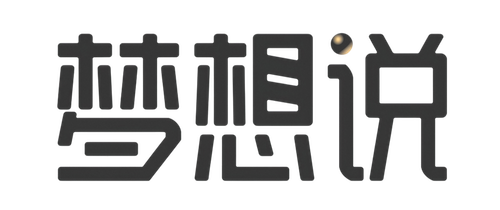共计 3747 个字符,预计需要花费 10 分钟才能阅读完成。
腾讯主动 relinquished its position as the largest shareholder of JD.com. Early this morning, Tencent announced in the Hong Kong Stock Exchange that it plans to distribute approximately 460 million JD.com shares as an interim dividend to Tencent shareholders. After the distribution, Tencent’s shareholding in JD.com will drop from 17% to 2.3%, and it will no longer be the largest shareholder. At the same time, Tencent President Liu Chiping has resigned from the JD.com board of directors, which is immediately effective. Based on JD.com’s closing price of HK$279.2 per share on December 22, it is estimated that the scale of Tencent’s interim dividend this time will reach approximately HK$130 billion. This is not only a rare dividend distribution of tens of billions of dollars by an Internet company, but also of profound significance for Tencent.
According to Tencent’s response, “investing in growth-oriented enterprises in the development stage” has always been the main strategic direction of Tencent’s investment. When the invested enterprises have the ability to raise funds independently, they will choose to exit under appropriate circumstances. Of course, this is the official statement. In the eyes of the outside world, Tencent’s “dividend-based share reduction” and the move to remove itself as the largest shareholder of JD.com are exactly measures taken in response to the current Internet regulatory environment. After all, policy propositions such as “strengthening anti-monopoly and preventing disorderly capital expansion” have become the regulatory swords faced by the platform economy in the past year. Tencent has naturally been involved. Whether it is the rumored merger of iQIYI and Tencent Video that fell through, or the confirmed suspension of the merger of Huya and Douyu, as well as the penalties imposed by the regulator on Tencent for multiple acquisitions involving “illegal concentration of business operators not declared in accordance with the law”, in the past year, many capital operations led by Tencent have been deeply affected by regulatory policies. And then to the active abandonment of the position of the largest shareholder of JD.com this time, Tencent’s intention to contract in capital expansion is obvious.
A fact is that in the past years of development, Tencent has taken investment as its core weapon and adopted an open strategy of “giving half of its life to its partners”, and has literally invested in another “Tencent”. The investment in JD.com in 2014 is a typical example under this kind of strategy, and the person in charge is also Liu Chiping. Before investing in JD.com, Liu Chiping was really hesitant. He and Ma Huateng met Liu Qiangdong in 2008. In the subsequent several meetings, every time the topic of investing came up, the conversations among the bigwigs were filled with a simple and rough smell of gunpowder. They said: Wait a little longer, fight a little more. But in the e-commerce field, Tencent had successive defeats, so much so that it was said to “lack the gene for doing e-commerce”. On the other side, JD.com was also belligerent, as if it could easily knock Tencent out. In the situation of ineffective competition, Tencent finally did a huge subtraction problem. When investing in JD.com, Tencent not only gave money, but also handed over its e-commerce business to JD.com. After a two-hour meal in Hong Kong in 2014, Tencent used US$215 million in cash, mobile traffic resources such as WeChat, and assets such as QQ.com’s online shopping, Paipai.com, and Yixun Logistics to obtain a 15% stake in JD.com. Before and after JD.com’s listing, Tencent 增持股份又投入近 2 亿美元,成为京东第一大股东。
从当时来看,这种投资战略非常成功。战略上,腾讯甩掉了自身做不好的电商包袱,并将自身微信等流量池开放给京东,助力京东快速成长的同时,腾讯也在电商市场彻底打开了一番局面。财务上,腾讯亦从投资京东上拿到高额回报。以 2014 年入股京东时操作为例,彼时后者估值约在 100 亿美金左右,现今京东的市值则在 1100 亿美金左右,距离 2014 的该轮投资,已浮盈 10 倍。一定程度上,也正是基于投资京东的战略大获成功,此后腾讯在投资开放路上步伐越走越宽,布局也是越走越深。美团、拼多多、滴滴、快手等一众主流移动互联网公司,背后都站着腾讯。2017 年那场马化腾身在 C 位、刘强东王兴分列左右、较多腾讯系公司陪席的饭局,便是一大缩影。腾讯财报,更为直接。腾讯 2020 年年报显示,截至 2020 年,腾讯公司权益持有人应占盈利达到 1598 亿元,这其中来自投资公司的收益占比达到 43.5%,达到 695 亿元,同比增长 236%。如果这一数据还不够刺激,那么加上这组:去年年底,仅腾讯所投资的联营公司的公允价值达到了 9819 亿元,接近万亿规模。俨然战绩辉煌。但此一时,彼一时。在新的监管背景下,腾讯显然需要重新思考其过去不往不利的投资战略,转换投资思路。比较明显的是,在退出京东投资的同时,腾讯表示,未来仍会坚定不移地执行投资战略,以少数股权投资的方式连接最优秀的管理团队和公司。但此时的投资关键词是“前沿科技”和“实体经济数字化”。对于腾讯来说,这就是另一个故事了。同时业内也普遍认为,京东不会是腾讯退出投资的唯一一个标的,还会有下一个。就看马化腾刘炽平这对搭档,如何取舍了。




